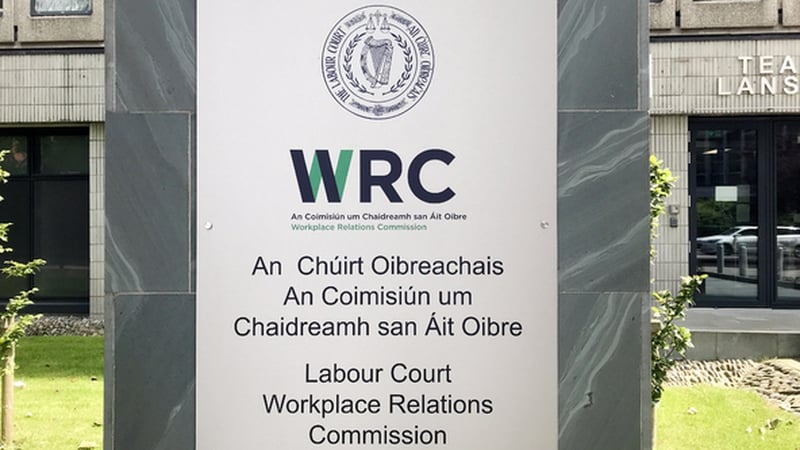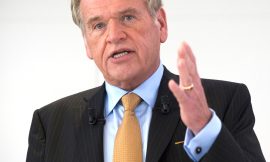Financial technology consultancy Bankhawk has been ordered to pay €64,000 in commission it withheld from a salesman as “leverage” to get him to sign a non-disclosure agreement after failing to retain the original.
Ian Armstrong, a sales lead with the company until he was made redundant in March 2024, was awarded the sum on foot of a complaint under the Payment of Wages Act 1991.
Mr Armstrong had a basic salary of €72,000 a year and a right to 10% commission on sales at the time of his termination, he told the WRC.
Having started at the firm in March 2017, Mr Armstrong’s evidence was that by the third quarter of 2023, he was responsible for bringing in three of the firm’s biggest clients and generating over a million euro in revenue.
He said he was due some €117,680 for bringing in the business, but the CEO, Brian Weakliam, wanted to defer paying to strengthen the company’s financial position while seeking investment.
“I outlined to the CEO that I needed to receive it as we risked losing trust and falling out,” Mr Armstrong wrote in a legal submission. He said they reached a deal to pay half the sum in the fourth quarter of 2023 and the rest in the first quarter of 2024.
This was “to soften the impact of €117,680 on 2023 performance” so that Mr Weakliam would be in a position to pursue “fundraising from a position of strength”.
Bankhawk, which was represented by HR consultant Eamon Gibney in the proceedings, submitted that Mr Armstrong, made “no sales whatsoever” in 2023 and put the company “under immense financial pressure”.
As well as allegedly failing to attend meetings for “a litany of last-minute personal reasons”, refusing tasks, and “falsely” claiming to have made sales, the company also alleged Mr Armstrong had expressed “moral reservations” about what it was selling.
It started a redundancy process with him in January 2024, the tribunal heard. As it progressed in the first quarter of the year, Mr Armstrong continued to seek the outstanding commission – telling the WRC in his evidence that there were “multiple promises” of payment.
“Despite those assurances, what followed was three months of prevarication and delays, u-turns and attempts to have [me] sign various agreements,” Mr Armstrong told the WRC.
The firm issued him with notice of redundancy on the basis of a statutory redundancy calculation on 16 February last year. Mr Armstrong told the tribunal that the firm also presented him with a “settlement agreement” at this time.
This included a waiver of claim to the WRC and what he described as an “enhanced” non-disclosure agreement (NDA) which he said went compared to the one he had signed when he started work.
Mr Armstrong wrote to the firm on 28 March last year that he would prefer to “explore” the question of any enhanced NDA or no-claims agreement “after receipt of my final pay”.
“This proposal was not acceptable to the company as the respondent would have no leverage of any kind then to rely on getting the NDA signed… and the complainant was clearly using that as leverage to force his way,” it was submitted on behalf of the company.
It took the position that if Mr Armstrong did not accept that he was contractually bound by the NDA, he “couldn’t rely on his contract to claim commission”.
The company also told the tribunal it had “overpaid” Mr Armstrong €60,000 in 2022 to aid him with buying a house site – and that this payment closed off any liability for commission on all Vodafone sales. Mr Armstrong said this was “absolutely false”.
Mr Armstrong ultimately received a €9,036 severance package in April 2024 after his employment came to an end on 11 March.
The company told the tribunal at a hearing that Mr Armstrong had said he didn’t have a copy of the original NDA that came with his contract of employment and declined to sign again when it asked him early in 2023.
However, in later correspondence with the WRC, the company stated that it had been unable to turn up a signed copy of the original NDA either.
Adjudication officer Patricia Owens found there was “clear evidence” that the parties had agreed on a rate of 10% commission in 2022 and that Mr Armstrong’s calculations were correct.
“I noted the change in the respondent position that the money was not due and had, in fact, been overpaid, and in truth I find this to position not be credible,” she wrote.
Ms Owens added that she respected the company’s concern about not having a signed NDA in place. “That cannot be used to excuse the non-payment of monies owed,” she wrote.
“It is evident that the respondent did not have proper procedures in place for the management of relevant employee documentation and this responsibility cannot be shifted to the complainant,” she added.
She awarded Mr Armstrong €57,680 for the commission payment due at the end of the first quarter in 2024 and a further €6,480 for 10% commission on the sales concluded before his employment ended – a total of €64,080.




